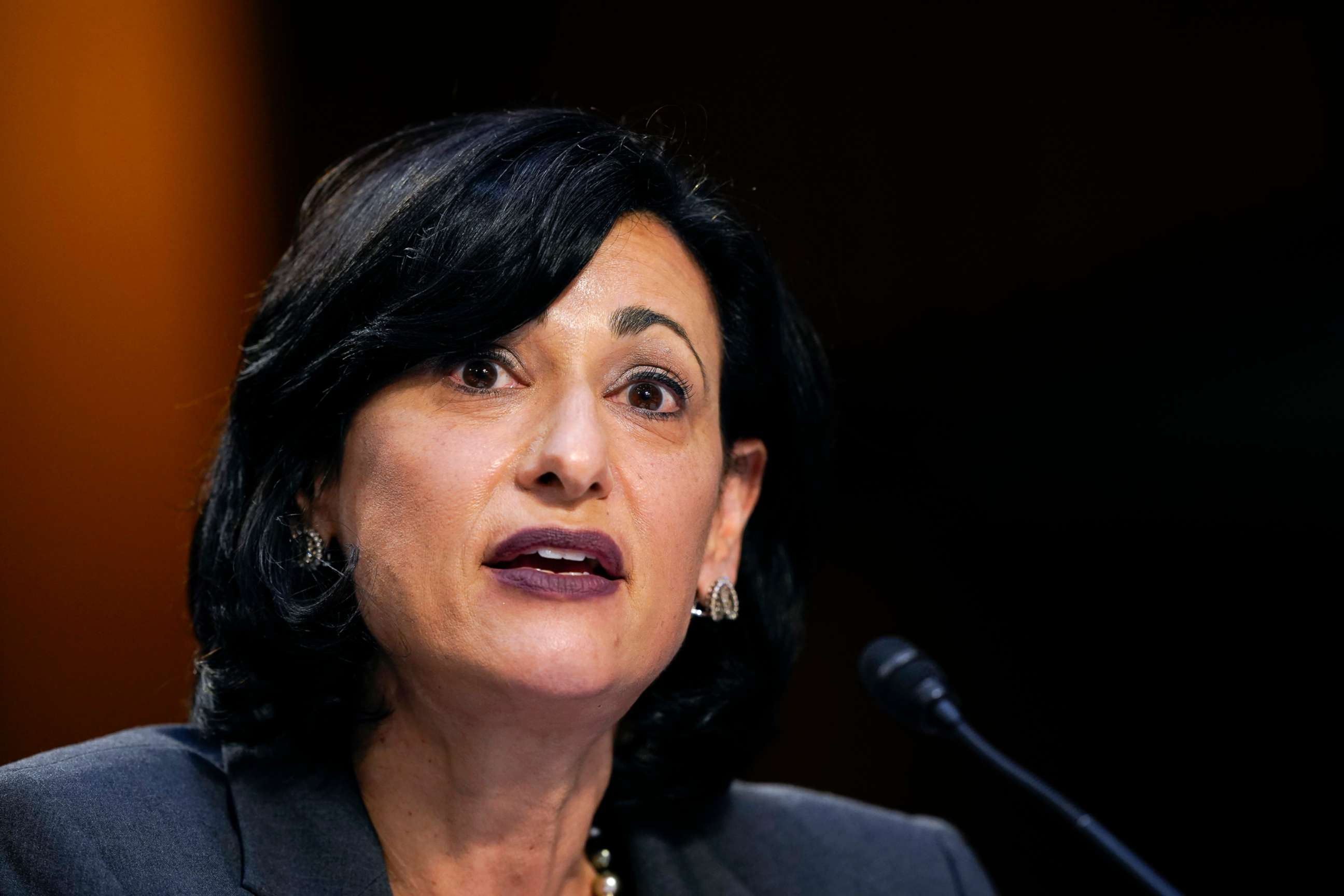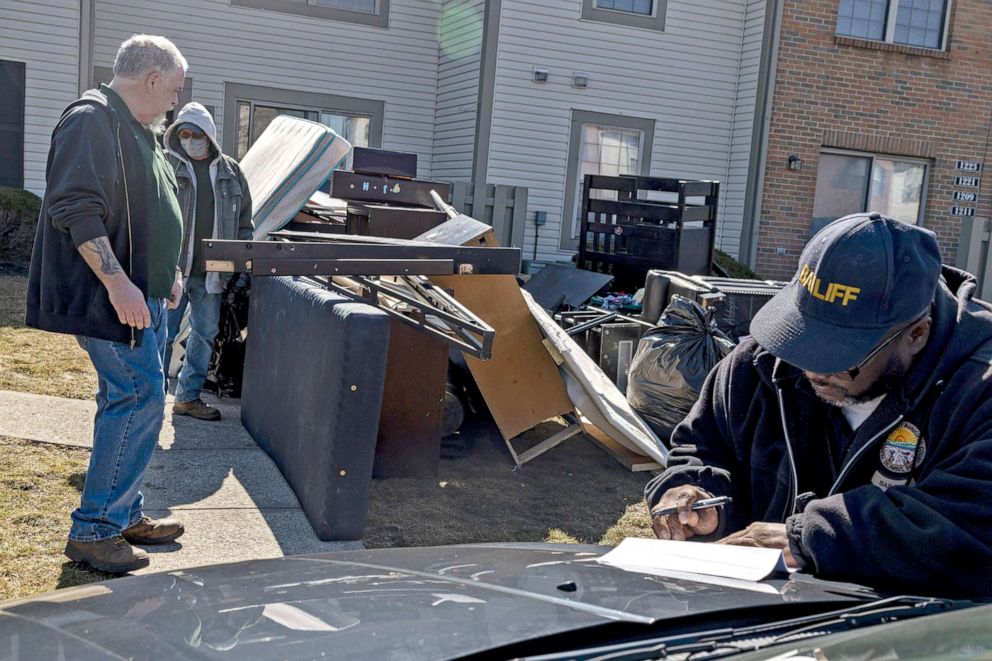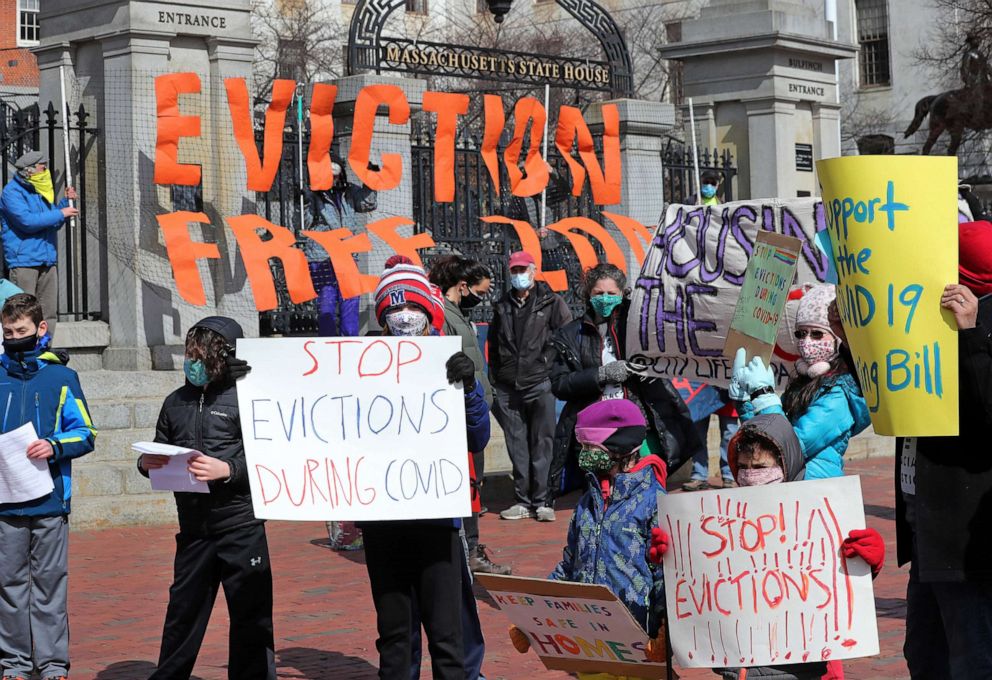CDC extends eviction moratorium until late June
The CDC says it will help Americans avoid "congregate" settings.
Dr. Rochelle Walensky, the director of the Centers for Disease Control and Prevention, has signed an extension on the agency's moratorium on evictions through June 30, further preventing the eviction of tenants who are unable to make rental payments, the agency said Monday.

The order was set to end March 31, but the CDC's move gives renters 90 more days of relief it in the interest of public health amid the COVID-19 pandemic. This is the second time that Walensky has extended the order to stop evictions during the pandemic.
"The COVID-19 pandemic has presented a historic threat to the nation’s public health," Walenskey said in a statement. "Keeping people in their homes and out of crowded or congregate settings — like homeless shelters — by preventing evictions is a key step in helping to stop the spread of COVID-19."
The CDC previously cited outbreaks in homeless shelters as cautionary tales about the danger the communal spaces can pose during the pandemic. The CDC also previously cited data from the Census Bureau's American Housing Survey that said that 32% of renters indicated they would move in with family or friends if evicted, which could pose spread within households.
The Department of Housing and Urban Development also extended a moratorium on evictions in federally assisted housing until June 30. Secretary for Housing and Urban Development Marcia Fudge discussed the move in a White House press briefing last week.

"Many of the people living in federally-assisted housing have risk factors that make them particularly vulnerable to COVID. These factors include disability, race, and low-income, along with racial and ethnic disparities in access to response, care, and treatment. We’re making sure that federal, state, and local efforts to reach those most at-risk of COVID are linking those efforts to people living in housing HUD supports," Fudge said. "The American Rescue Plan is critical to our success in these efforts."
Fudge discussed the rates of homelessness on ABC News' Good Morning America last week, which a report by HUD found were up 2% in 2020, a statistic that does not reflect the impact of the pandemic.
"I'm not going to try to sugarcoat it. I mean, when we have people who are literally living on the streets, in those numbers, in an extraordinary circumstance, such as COVID, we know that it's going to get worse. What we're trying to do now is make sure that we can cut it off before it gets any worse. That is why it is so significant that we can help cities and communities find housing for people who are most at risk of contracting COVID in the first place."

Funds in the president's $1.9 trillion COVID-19 relief package allocated more than $21 billion in assistance to renters. White House press secretary Jen Psaki discussed the move during a press briefing Monday and discussed rental assistance funds.
"The president is committed to supporting renters and small landlords through the COVID-19 crisis, essential to that effort is of course the American Rescue Plan, which delivers an additional $21.5 billion in emergency rental assistance to help millions of families keep up on rent and remain in their homes," Psaki said.
ABC News' Stephanie Ebbs and Allison Pecorin contributed to this report.




